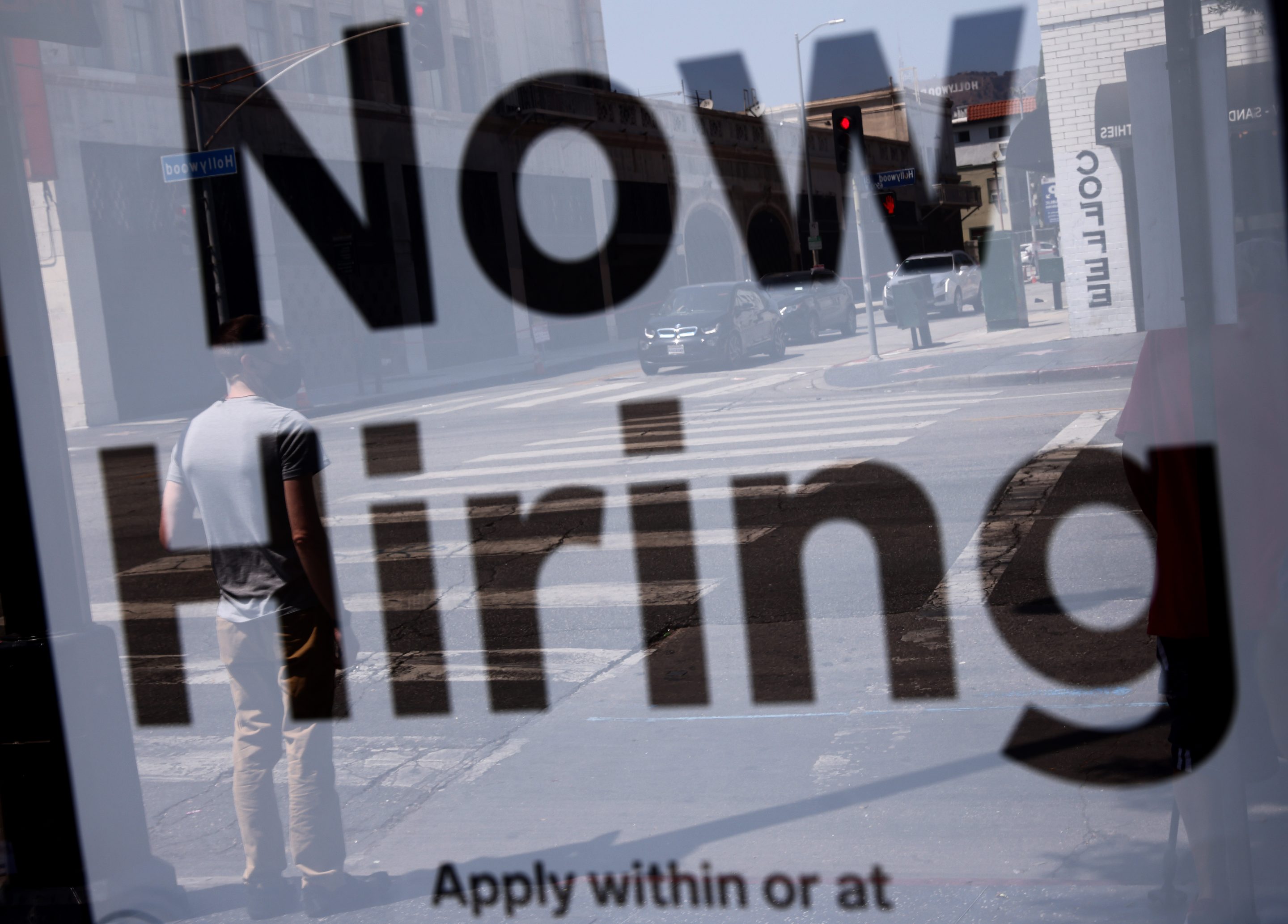
For both employers and applicants, the job market is a tough gig
For both employers and applicants, the job market is a tough gig

You know what the federal jobs report doesn’t tell us? What it’s like to find workers or look for a job. In the last several years, a lot has changed on both sides of the equation, which can make the matchmaking process tough.
For much of 2023, companies felt like a recession was lurking around the corner, always just months away. Maybe not … but maybe.
“Felt like we were walking on eggshells. Everyone was holding their breath, waiting for something to happen,” said John Asdell, a vice president at recruiting and talent firm Robert Half. He said employers thought maybe we shouldn’t be hiring quite so much.
For applicants, that can be frustrating.
Take Frederique Bazin, who’s 49 and lives near Boston. She was laid off from her job in marketing and commercial strategy last spring. Since then, she said, she’s applied for 106 jobs and received rejection emails from about half.
“A quarter of them, they go into a deep, black hole. And then maybe another quarter, there’s been some level of engagement,” she said.
When Bazin does get an interview, the process is long. Like one job she’s a finalist for — over several months, she’s met with multiple executives and given a panel presentation. Then, last week, the company paused hiring.
“I may have spent in total maybe 25 hours on this role that is now pushed out another six months,” she said.
It’s hard to know why. She wonders if they’re keeping her on the sidelines while they look for someone who’s younger or costs less.
The sad truth is a lot of companies don’t really care about how the hiring process feels to applicants.
“Some organizations never have a challenge hiring,” said Susan LaMotte, CEO of consulting firm Exaqueo.
Maybe they have a strong brand or just never have a lack of applicants. “They’re the ones that seem to deprioritize candidate experience,” LaMotte said.
And some companies may have thought that as the labor market cooled, they were about to get the upper hand, said Asdell at Robert Half.
“They go out into this market expecting there to be more applicants than there were in ’21 and ’22, and I think they’re somewhat disappointed,” he said.
Employers with pent-up desire to hire assumed they’d have the pick of the litter this year. Turns out, they are the litter.
“Really talented candidates are getting multiple offers when you’re trying to hire them,” said Asdell. “It’s still competitive.”
But it’s competitive for job seekers, too. With remote work, there are more opportunities. But that means going up against more people. Career coach Eliana Goldstein said when that happens, employers can make remote work work for their bottom line.
“So you’re based in New York and I’m gonna hire someone in Birmingham, Alabama, and be able to pay them a potentially lower salary that’s going to be advantageous,” she said.
In some ways, it sounds like both employers and job seekers feel a little powerless.
We can’t measure feelings, but we can measure who technically has the upper hand — at least very broadly. Aaron Sojourner, a labor economist at the Upjohn Institute for Employment Research, has a number for it: the labor leverage ratio.
You take the number of employees who quit, who’re saying, “Take your job, I don’t need it.” Divide it by the number of employees who are fired, where the employer’s saying, “We don’t need you.”
“That ratio is at a record high,” Sojourner said.
Meaning, employers need workers more than workers need employers.
But looking for a new job and trying to hire a new person, these things are just hard, maybe even unpleasant, parts of life.
No matter what the labor market numbers say.
There’s a lot happening in the world. Through it all, Marketplace is here for you.
You rely on Marketplace to break down the world’s events and tell you how it affects you in a fact-based, approachable way. We rely on your financial support to keep making that possible.
Your donation today powers the independent journalism that you rely on. For just $5/month, you can help sustain Marketplace so we can keep reporting on the things that matter to you.
















